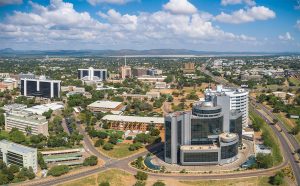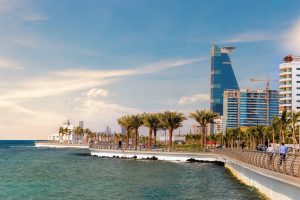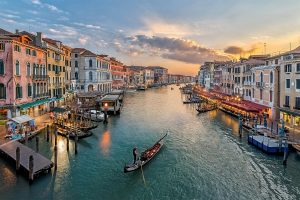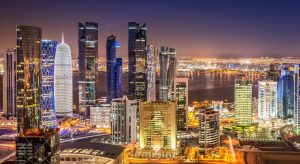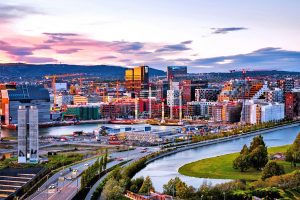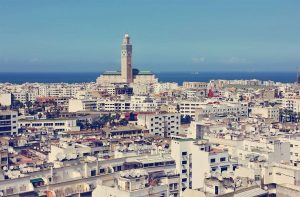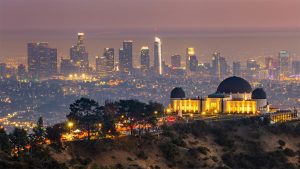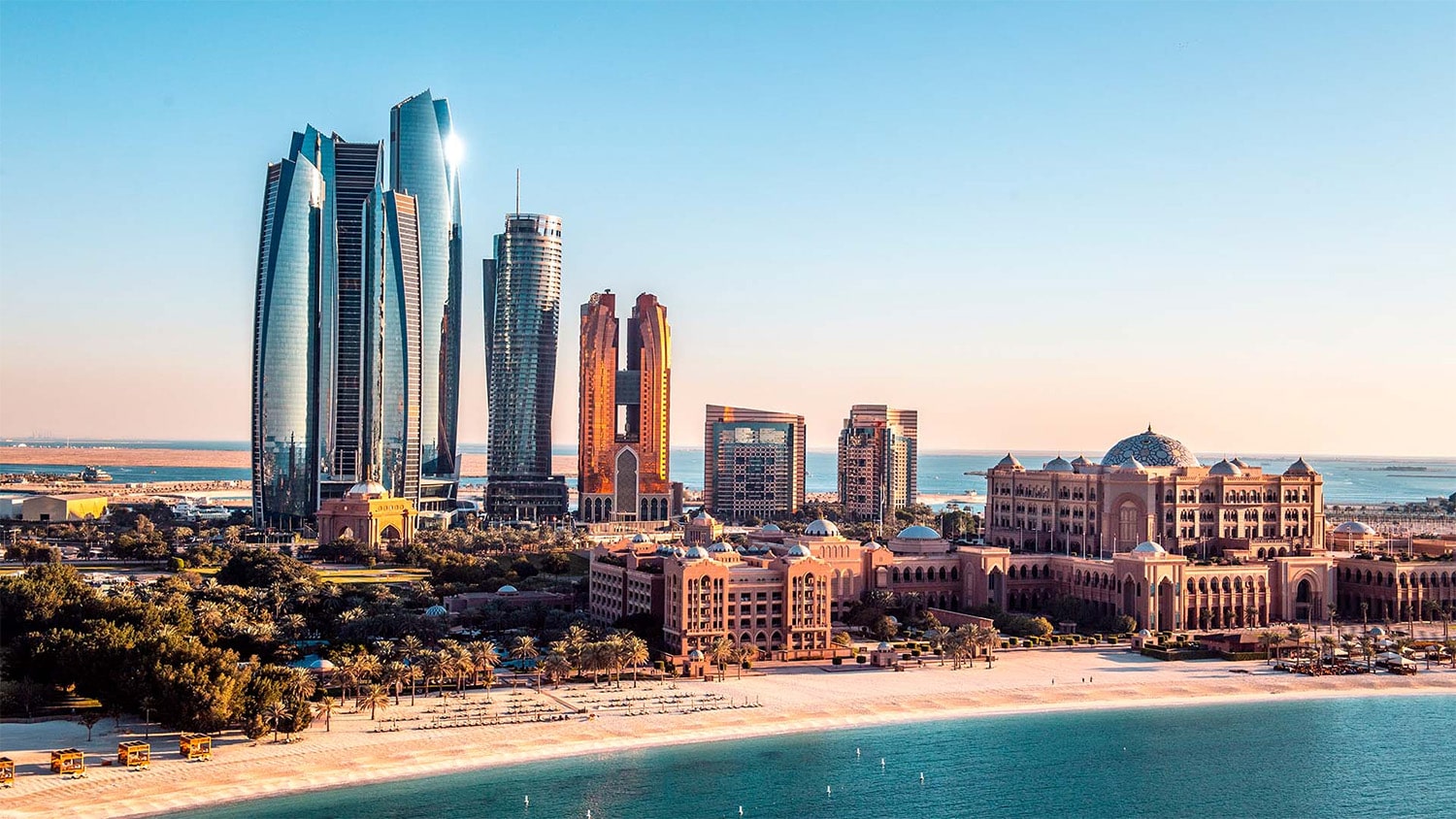
33 interesting facts about Abu Dhabi
- 👁️ 440
Abu Dhabi, the capital of the United Arab Emirates (UAE), is a city that exemplifies a remarkable blend of traditional Arabic heritage and modernity. This vibrant city, situated on an island in the Persian Gulf, has rapidly evolved from a small pearl trading village to a bustling, cosmopolitan metropolis and a leading center for business, culture, and tourism in the region. Abu Dhabi’s commitment to sustainable development, cultural preservation, and architectural innovation is evident in its world-class museums, futuristic skyscrapers, and lush green spaces. From hosting the Formula 1 Grand Prix to preserving delicate ecosystems within its borders, Abu Dhabi offers a unique mix of attractions that cater to all tastes. Let’s explore some interesting and informative facts about Abu Dhabi that highlight its significance on the global stage, its cultural richness, and its vision for the future.
- Abu Dhabi is the largest of the seven emirates that constitute the UAE, covering around 87% of the country’s total land area.
- The name “Abu Dhabi” translates to “Father of the Gazelle” in Arabic, possibly referring to the gazelles that once inhabited the emirate.
- Before the discovery of oil in the 1950s, Abu Dhabi’s economy was primarily based on pearl diving, fishing, and agriculture.
- The city is home to the Sheikh Zayed Grand Mosque, one of the world’s largest mosques, with a capacity to accommodate over 40,000 worshippers.
- Abu Dhabi’s Corniche, a picturesque waterfront promenade, stretches over 8 kilometers, offering pedestrian pathways, beaches, and leisure areas.
- The emirate is investing heavily in renewable energy and sustainable technologies, exemplified by Masdar City, a planned city project that aims to be one of the world’s most sustainable urban communities.
- Abu Dhabi hosts the annual Formula 1 Etihad Airways Abu Dhabi Grand Prix at the Yas Marina Circuit, attracting visitors and motorsports enthusiasts from around the globe.
- The Louvre Abu Dhabi, which opened in 2017, is the first universal museum in the Arab World, created in partnership with the French government and the Louvre Museum in Paris.
- More than 200 islands are part of the Abu Dhabi emirate, including Yas Island, known for its entertainment and leisure facilities, and Sir Bani Yas Island, a wildlife reserve.
- The emirate controls more than 90% of the UAE’s oil reserves and 95% of its natural gas reserves, making it a critical player in the global energy market.
- The Abu Dhabi Falcon Hospital is the world’s largest and most advanced hospital dedicated to the falcon, the national bird of the UAE.
- Abu Dhabi’s Saadiyat Island is being developed into a cultural hub, with plans for museums, art galleries, and educational institutions.
- The Qasr Al Hosn, the oldest stone building in the city, has been a fort, a royal residence, and now serves as a museum showcasing Abu Dhabi’s history.
- The Emirates Palace Hotel, one of the most luxurious hotels in the world, cost approximately $3 billion USD to build.
- Mangrove National Park in Abu Dhabi covers around 19 square kilometers, offering a habitat for marine and bird life and acting as a natural coastal defense.
- Abu Dhabi’s population is incredibly diverse, with expatriates making up about 80% of the residents.
- The city’s Al Ain Zoo is home to over 4,000 animals and is a leader in wildlife conservation and breeding programs, particularly for endangered Arabian species.
- Abu Dhabi is working towards its Vision 2030, focusing on economic diversification, social and cultural development, and environmental sustainability.
- The Capital Gate building, known as the “Leaning Tower of Abu Dhabi,” holds the Guinness World Record for the world’s furthest leaning man-made tower.
- Yas Waterworld, a mega water park in Abu Dhabi, is themed around Emirati culture and pearl diving heritage.
- The city has a hot desert climate, with temperatures in the summer months frequently exceeding 40°C (104°F).
- Abu Dhabi International Airport is the second largest airport in the UAE and serves as a major hub for international travelers.
- The emirate’s cultural calendar includes the Abu Dhabi International Book Fair and the Abu Dhabi Film Festival, drawing participants and audiences from across the world.
- The Guggenheim Abu Dhabi, designed by architect Frank Gehry, is set to be an international destination for contemporary art and culture.
- The observation deck at Etihad Towers offers panoramic views of Abu Dhabi’s skyline and the Arabian Gulf.
- Abu Dhabi’s Heritage Village provides insights into the traditional Bedouin lifestyle, including crafts, a spice shop, and a reconstruction of a traditional oasis village.
- The Al Forsan International Sports Resort offers a range of sporting activities, from horseback riding and shooting to wakeboarding and karting.
- The emirate’s judicial system is a mix of civil law and Sharia law, the latter being used primarily for family law matters for Muslims.
- Abu Dhabi was ranked as one of the safest cities in the world based on low crime rates.
- The city’s rapid development has been carefully planned to include green spaces and parks, contributing to the quality of life for its residents.
- The Hudayriat Island leisure and entertainment project aims to enhance Abu Dhabi’s offering as a destination for sports, adventure, and healthy living.
- The Warner Bros. World Abu Dhabi, an indoor amusement park, features six immersive lands based on Warner Bros. characters and stories.
- Traditional dhow boats, once used for fishing and pearl diving, are now popular for leisure cruises along Abu Dhabi’s coastline.
Abu Dhabi’s journey from a humble pearl-diving village to a global city of luxury, culture, and innovation is nothing short of remarkable. Its blend of traditional heritage and forward-thinking vision makes it a unique destination and an important cultural and economic hub in the Middle East. As Abu Dhabi continues to grow and diversify, it remains committed to sustainability, cultural enrichment, and the well-being of its diverse population. Through its ambitious projects and initiatives, Abu Dhabi is not only shaping its own future but also making a significant impact on the wider world.
